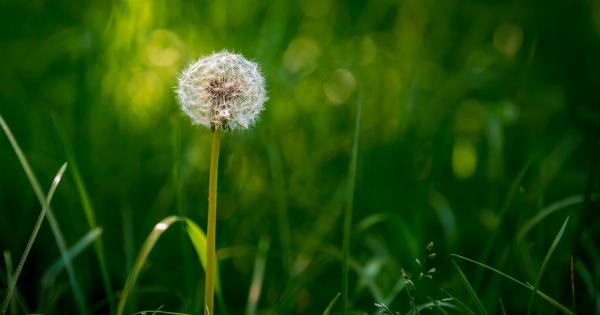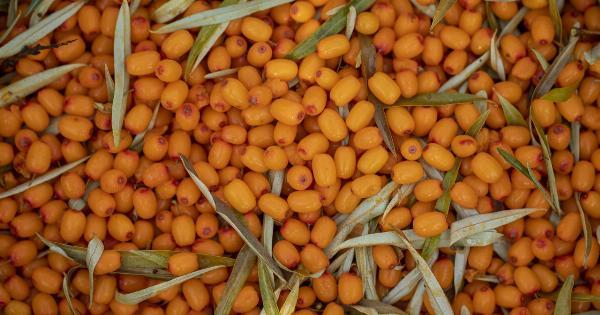When it comes to gardening, weeds are often seen as the enemy. They invade our lawns and flower beds, stealing nutrients and sunlight from our desired plants.
However, what many people don’t realize is that weeds possess hidden powers and surprising benefits that can actually be harnessed for our advantage. In this article, we will explore the fascinating world of weeds and uncover their hidden powers.
1. Natural Pest Control
Weeds may seem like a nuisance, but they can actually play a crucial role in natural pest control.
Some weeds, such as stinging nettle and yarrow, attract beneficial insects like ladybugs and lacewings that feed on harmful garden pests like aphids and caterpillars. By allowing these weeds to grow in your garden, you create a natural ecosystem that keeps harmful insects in check.
2. Soil Improvement
Many weeds are deep-rooted plants that can help improve the condition of the soil. Weeds like dandelions and dock penetrate deep into compacted soil, breaking it up and allowing better aeration and water penetration.
These weeds also bring up nutrients from the subsoil, making them available to other plants. While they may be unsightly, they are doing an important job of improving your soil’s health.
3. Medicinal Properties
Believe it or not, some weeds have remarkable medicinal properties. For centuries, traditional healers have used weeds like dandelion, plantain, and chickweed to treat various ailments.
Dandelion, for instance, is known for its detoxifying and diuretic properties and can be brewed into a tea or eaten in salads. Plantain leaves can be chewed and applied to insect bites or skin irritations to reduce inflammation and promote healing.
4. Edible Weeds
Not all weeds are bad for your garden or your health. In fact, some can be downright delicious! Foraging for edible weeds is a popular trend among food enthusiasts.
Weeds like purslane, lamb’s quarters, and chickweed are packed with nutrition and can be used in salads, stir-fries, or even made into pesto. The next time you’re pulling out weeds, take a closer look and you might find a tasty addition to your dinner plate.
5. Biodiversity Support
Weeds, particularly native varieties, play a vital role in supporting biodiversity. They provide shelter and food for numerous insects, birds, and other wildlife.
Weeds like milkweed are essential for the survival of monarch butterflies, as they serve as the only food source for their caterpillars. By embracing certain weeds in your garden, you are actively supporting and preserving local ecosystems.
6. Companion Planting
Weeds can also serve as useful companions in your garden. Some weeds, like comfrey and borage, have deep taproots that mine nutrients from deep within the soil.
When these weeds are cut back and left to decompose on the soil surface, they release valuable nutrients that neighboring plants can take up. Additionally, certain weeds can attract pollinators and beneficial insects, improving the overall health of your garden.
7. Indicator of Soil Conditions
Believe it or not, weeds can act as indicators of your soil’s health and conditions. Different weeds thrive in different soil types and conditions.
For example, dandelions are often found in compacted soil with low calcium levels, while sorrel prefers acidic soil. By observing the type of weeds growing in your garden, you can gain insights into the state of your soil and make necessary amendments.
8. Natural Dyes
Did you know that many weeds can be used to create natural dyes for fabrics? Weeds such as goldenrod and mullein can produce beautiful yellow and green dyes respectively.
By collecting and using these weeds, you can tap into a sustainable and chemical-free way of coloring textiles.
9. Soil Stabilization
Weeds can also play a role in preventing soil erosion and stabilizing slopes. The extensive root systems of weeds help bind the soil, reducing the risk of erosion caused by wind or water.
This is particularly beneficial in areas prone to landslides or where construction activities have disturbed the soil.
10. Psychological Benefits
Lastly, spending time in the garden, even if it means dealing with weeds, has numerous psychological benefits. Gardening can reduce stress, improve mood, and promote overall well-being.
Weeding, in particular, can be a meditative activity that allows you to connect with nature and find peace of mind.





























